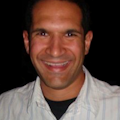Former Illinois Chief Who Lost Son to Suicide Puts Focus on Mental Health
View Coverage of Firehouse Expo 2010
Kenny -- who spoke at Firehouse Expo today -- was the head of the Hinsdale Fire Department at the time. He retired in 2008 and now serves as the Assistant Executive Director for the Illinois Fire Chiefs Association.
The youngest of his three sons, Sean, was diagnosed with clinical depression when he was only five years old. He was in counseling and on medication, but by the time he was in high school, he was admitted to a psychiatric hospital.
He was in and out of the hospital and graduated with a B-average but soon developed a drug issue.
Kenny was recognized by the Illinois Fire Chiefs Association as Fire Chief of the Year in 2004 while his son's illness continued to worsen.
"I was being recognized while my son was fighting for his life. Did I tell anyone? No," he said. "I stood in front of all of those people that day and all I thought is that I wanted to save my son. I felt like a fraud."
When Sean turned 20, his condition deteriorated. He tried experimental treatments, but they only made things worse, leading to his decision to take his own life.
"I never -- through any of this -- shared it with the people in my organization," he said. "I wasn't just protecting him, but I was protecting myself as well. I didn't want people to think that I couldn't lead."
Following his son's death, one firefighter was reported by a colleague while displaying unusual behavior. When he was in Kenny's office he told him he wasn't at work the previous day because he was lying in the bathtub with the barrel of a gun in his mouth.
"I was thinking I might join your son," he told him.
Kenny took him to a hospital and admitted him.
"He felt like he couldn't come forward. Thank God he did."
He soon realized that he wasn't the only one with problems and just like him, many were not willing to talk about them.
"We don't empower our firefighters to come forward and say 'I need help' or 'My family needs help,' " he said. "We have some leaders who think if they don't look at it, it'll go away. That was me."
He said the current state of mental health in the fire service is similar to calling a "Mayday" when a firefighter is in trouble.
"We wait too long until it's too late," he said. "Firefighters know when they are in trouble, but they are not empowered to come forward."
He said that when firefighters do come forward, it's critical that counselors and those involved in a department's employee assistance program have a background in the fire service.
"I got lucky. There are hardly any trained professionals out there that know about the fire service."
He pointed to the Chicago Fire Department's "Family Focus Day" as an example to a proactive approach to addressing mental health. The event -- which was in its second year, this year -- was created after the department lost seven firefighters to suicide within an 18-month span.
The event offers firefighters and their families a forum to obtain information from different organizations and groups that could help with an array of issues including divorce, financial problems and substance abuse.
"It's just outstanding. It shows that it can be done," he said. Not only was the event held, but it was a success. In both installments so far, close to 1,000 people showed up.
The Illinois Fire Chiefs Association is currently trying to organize a day similar to what Chicago has done that would be open to all public safety personnel in the state.
He said that a big problem with getting resources put towards addressing mental health issues is money. With more and more municipalities cutting budgets, many departments don't have the ability to pay for such programs.
One solution he suggests is to tie a federal grant program to mental health. "I think you would really see a change in the approach" if funds were made available.
Kenny now travels the country speaking to firefighters about the need to put a focus on mental health in the memory of his son. He said he has never been angry with his son's decision because he knew the extent of his illness.
"I'm not angry with him at all, because he fought harder than anyone else I know," he said. "He was my gift. I had him for 20 years and now I get to carry his message on to other people."
About the Author
Paul Peluso
Staff Writer
Paul Peluso is a Firehouse.com staff writer and has worked for the Web site since 2006. Previously, he worked as a reporter for several community newspapers located in the suburbs of Baltimore, Md. Since joining the newsteam, Paul has covered various fire service issues including fire sprinklers, grants, line of duty deaths and technology. While he started out at the Beltsville, Md. office, he has since moved to Florida where he works out of his home office in Tampa.
